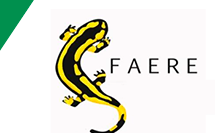Component-free strategy of firms under pressure from the NGOs
1 : LEAD, Univ. Toulon
Université du Sud - Toulon - Var
2 : PSE
PARIS SCHOOL OF ECONOMICS, Paris School of Economics
3 : Paris Jourdan Sciences Economiques
(PJSE)
-
Site web
Université Panthéon-Sorbonne : UMR8545, École normale supérieure - Paris, Institut National de la Recherche Agronomique, École des Hautes Études en Sciences Sociales, Ecole des Ponts ParisTech, Centre National de la Recherche Scientifique
48 boulevard Jourdan 75014 Paris -
France
There is a growing pressure of NGOs on firms to have them eliminate a component (as oil palm) harmful for the environment (as rainforests) from their products or to replacesuch a component with a sustainable substitute component the NGO certifies. Under which conditions NGO's pressure leads a firm to eliminate basic component in its product or, alternatively, to substitute a damaging component with the certified sustainable component? What are the ensuing effects on market structure? This paper addresses these issues using a model of two-dimensional vertical product differentiation.




